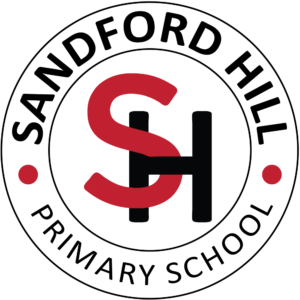EYFS Framework
At Sandford Hill Primary School we follow the Early Years Foundation Stage Statutory Framework. The Early Years Foundation Stage (EYFS) sets the standards that all early years providers must meet to ensure that children learn and develop well and are kept healthy and safe. It promotes teaching and learning to ensure children’s ‘school readiness’ and gives children the broad range of knowledge and skills that provide the right foundation for good future progress through school and life.
Overarching principles
There are four guiding principles that shape practice in EYFS settings.
The principles are: –
- Every child is a unique child, who is constantly learning and can be resilient, capable, confident and self-assured.
- Children learn to be strong and independent through positive relationships.
- Children learn and develop well in enabling environments with teaching and support from adults, who respond to their individual interests and needs and help them to build their learning over time. Children benefit from a strong partnership between practitioners and parents and/or carers.
- The importance of learning and development. Children develop and learn at different rates.
For more information see links below.
Areas of learning and development
Within the EYFS there are seven areas of learning and development. Three areas are particularly important for building a foundation for igniting children’s curiosity and enthusiasm for learning, forming relationships and thriving.
These are the prime areas; Communication and Language, Physical Development and Personal, Social and Emotional. Development
We also support children in four specific areas, through which the three prime areas are strengthened and applied.
The specific areas are: Literacy, Mathematics, Understanding the World and Expressive Arts and Design
Early Learning Goals
At the end of the Reception year, the children are assessed against the seventeen Early Learning Goals that are listed below. A judgement will be made for each child to say if the child has achieved an emerging level (working below) or an expected level.
The 17 Early Learning Goals are based on:
Communication and language
- Listening, Attention and Understanding
- Speaking
Mathematics
- Number
- Numerical Patterns
Understanding the World
- Past and Present
- People, Culture and Communities
- The Natural World
Personal, Social and Emotional Development
- Self-Regulation
- Managing Self
- Building Relationships
Literacy
- Comprehension
- Reading
- Writing
Expressive Arts and Design
- Creating with Materials
- Being Imaginative and Expressive
Physical Development
- Gross Motor Skills
- Fine Motor Skills
